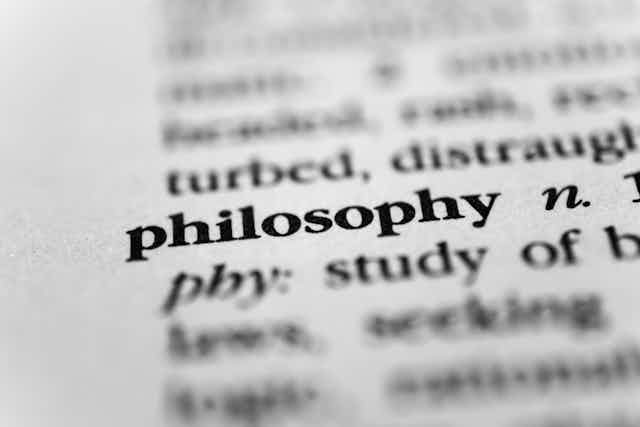Devotees of the popular series “Game of Thrones” may recall Jaime Lannister’s fatal, but memorable, quip: “The things we do for love”. He said this just before hurling a ten-year-old boy down a high castle wall.
The boy’s “crime”? He’d caught Lannister in an incestuous embrace with his sister, Cersei. One can only truly fathom the enormity of Lannister’s wicked shove by becoming simultaneously acquainted with the intensity of his love for his sister. Love, or a certain way of loving, shows itself to be exclusive. It is always seeking to rid itself of the “outsider”.
Academic philosophy, too, is a love affair – with wisdom. But it’s one that, like the Lannisters’, comes with a distinctively dark side.
Much of academic philosophy is openly and unashamedly in love with the idea of the West as destiny. It loves the West’s culture, history and thinkers, to the exclusion of the other. And this other is everything African.
This is all happening right here in Africa. It is, to borrow American philosopher Paul Taylor’s phrase, philosophy “corrupted”.
Too much in common
Some have seen the light and decided it’s time for “transformation” – a magical word that, in the mouths of a few, seems to promise more than it can deliver. These people have suggested a new state for academic philosophy in Africa; an alternate world to what currently exists at the continent’s universities.
The problem is that, for some, this “transformed” world of African philosophy has much in common with its Western counterpart. It comes with clearly defined geographical boundaries, strict rules of admittance and non-negotiable terms of legitimate citizenship. It has self-appointed gatekeepers. They bicker about who belongs and who doesn’t. They seem to think that politicking about identity and belonging is a necessary first step towards transformation. This, too, is becoming African philosophy’s dark side.
The seed for this sort of thinking was already sown in the early days of the formation of the canon of contemporary African philosophy. Benin’s Paulin Hountondji in his book, “African Philosophy: Myth and Reality”, sought to distinguish what is mythical and what is real about African philosophy and in the process suggested that African philosophy is philosophy done by Africans.
As would later become clear, Hountondji’s primary interest was in seeing the development of a discursive tradition of African philosophy rooted in scientific rigour. This was instead of merely proposing an African identity as prerequisite for doing African philosophy.
But definitions, especially uncomplicated ones, have a way of prevailing with philosophers. So “African philosophy” was immediately assumed by many to be a philosophy practised by Africans – in the geo-ethnic sense of the word. These people belong to ethnic groups situated in the geographical area called Africa. This definition excludes those who may be Africans but trace their ethnic identity elsewhere.
This laid down the condition of legitimate citizenship; the basis of differentiation between the African and non-African Africanist philosopher; a sense of belonging and exclusion.
It is worth thinking about how the politics of identity in African philosophy might inhibit the aims of transformation – of giving academic philosophy an African face. Let’s ask a plain question: is the vocation to teach, research and publish on African philosophy the preserve only of black Africans?
Silencing of black voices
It may be argued that a certain kind of evil is perpetrated where non-African – here I mean white – philosophers take up this vocation: the continued silencing of black philosopher’s voices. The muzzling of marginal and specifically black voices in academic philosophy is systematic. It figures within a historical pattern of white savagery.
But the cure for this sort of silencing is not to have non-African, white philosophers shut their mouths and retire their pens. Instead, systemic barriers must be repaired. Black philosophers will need to be trained and employed in philosophy departments across the continent. Journals that have traditionally blocked black voices from being heard must begin to publish these philosophers.
The transformation agenda will suffer if an African identity is a precondition for teaching, researching and publishing in African philosophy. This precondition would be a let off for non-African, white philosophers on the continent who aren’t yet disposed to avail themselves as agents of transformation.
Regrettably, this breed of philosophers populates and still colonises philosophy departments – certainly in South Africa, where I’m based. Ruling them out on account of their illegitimate status as citizens of the imagined African nation equips them with enough of a reason to be mere onlookers in the process of transformation. This perpetuates the “corruption” of philosophy I referred to earlier.
Non-African, white philosophers should, because of their epistemic location and current employment in South African philosophy departments, be agents of the transformation agenda.
The responsibility of white philosophers
This shouldn’t be optional. These people have a responsibility to teach, research and, where possible, publish on African philosophy: on ubuntu morality, Kwasi Wiredu’s Akan notion of truth and Yoruba epistemology. If they can’t, it may be a matter of incompetence rather than identity.
They should actively seek out and mentor promising black philosophy students to become faculty members who will replace them. Again, if they can’t, it has nothing to do with identity. It’s all about disposition.
After all, some non-African, white philosophers with an Africanist bent are already in the business of doing this. It is no use helping others evade the responsibility they have to this place. Nor should those who are already assuming that responsibility be scrutinised simply because they are not African. Transformation in philosophy is not about the politics of belonging and exclusion.

